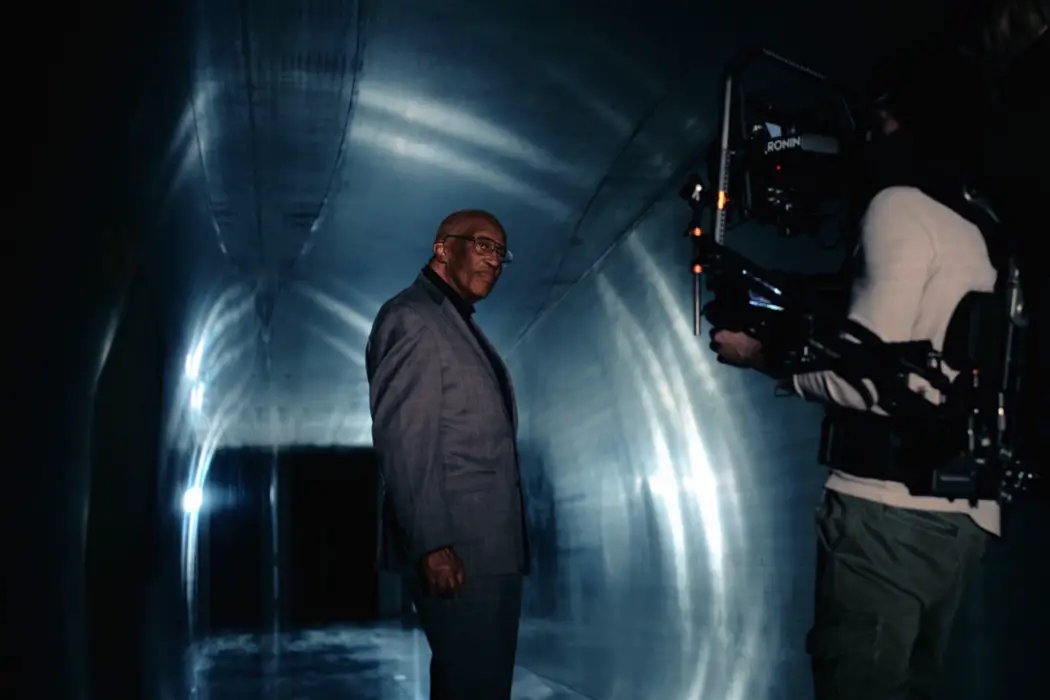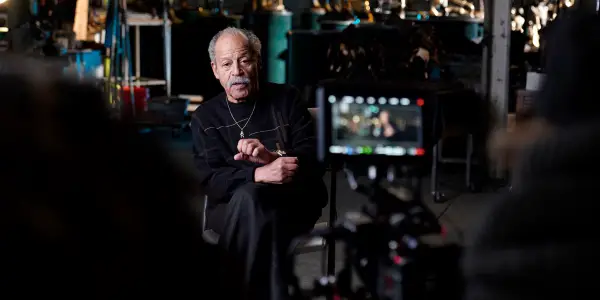Tribeca Film Festival 2023: THE SPACE RACE

Stephanie Archer is 39 year old film fanatic living in…
Like many children, when I was little, I wanted to be an astronaut. The names of John Glenn, Neil Armstrong and Sally Ride were frequented in my house – and even to this moment, if the opportunity presented itself, I would blast off in a heartbeat. So when Lisa Cortes and Diego Hurtado de Mendoza’s The Space Race was announced for the 2023 Tribeca Film Festival lineup, it became an instant must see. The Space Race captures the journey of space flight though the unrelenting spirit and resilience of the black community and those who would break the barriers for the astronauts that would follow.
Reaching For the Stars
When you think about the early images of NASA, it is literally a depiction of NASA’s perceived “right stuff” – white males all around 5’10. Boasting the talking heads of Ed Dwight, Guy Bluford, Charlie Bolden and Melvin Glover, The Space Race breaks through the historical standard of NASA, giving a depth to the space program that has never been deeply examined before.

Starting with a fast-paced and engaging opening sequence, The Space Race immediately merges the paths of both the space program and the civil rights movement. As rapid as the opening is in its imagery, the documentary immediately slows to a pensive pace, Ed Dwight offered a platform to tell his story. Nominated to become an astronaut by John F. Kennedy as a campaign promise made on the trail to solidify the black vote, Ed Dwight became the hope of many. He was viewed to become the first black astronaut in space, and while the challenges he faced to achieve what was needed to qualify, the assassination of JFK brought a swift end to his dreams of reaching space.
The film works through the decades, much of the fight within the civil rights movement aligning with the fight of inclusivity in space. It would be almost two decades after Ed Dwight before the program would have its first black astronaut in space. With the introduction of the space shuttle, flights now only required two pilots, which opened the doors for a variety of scientists and NASA inclusivity. While he was one of three black men chosen as an astronaut candidate in 1978, a team that also included Ronald McNair and Frederick Gregory, Guy Bluford was selected to represent his country and community as he became the first black astronaut in space in 1983. And this wouldn’t be his only flight either, Bluford completing four flight missions during his time at NASA.
Male Focused Documentary
While much of The Space Race focuses on the careers of Ed Dwight and Guy Bluford, I had expected a broader coverage of the entire contribution the black community has had on the space program, and was surprised to find the scope was narrowed to just that of the black astronauts that pursued the path to be in space. Missing are the formally hidden figures of Katherine Johnson, Mary Jackson, Dorothy Vaughn, Christine Darden, and Patricia Cowings. This absence of focus on the women in the space program felt strongest within the documentary’s angle as little attention was paid to Mae Jemison, the first female black astronaut on space. The Space Race successfully puts on celluloid the history of the black community in the space program, yet it was only concerned with the men. Even with the talking heads, it was limited to the male perspective of the diversity of the space program.

The female perspective is brought to the forefront not as a NASA engineer or pilot working behind the scenes or the first in space, but rather through the science fiction representation of what was possible. This is one of the few times the lines of fantasy and reality work to the advancement of a community.
Conclusion
If there is one thing I took from the documentary is the vital need to tell these stories. As The Space Race expands to encompass the civil rights movement paralleling Ed Dwight’s entry into the space program, so too does this documentary expand on the modern-day fight for the inclusion of black history in education.
Watch The Space Race
Does content like this matter to you?
Become a Member and support film journalism. Unlock access to all of Film Inquiry`s great articles. Join a community of like-minded readers who are passionate about cinema - get access to our private members Network, give back to independent filmmakers, and more.













